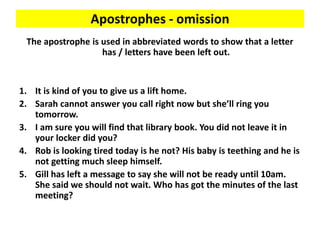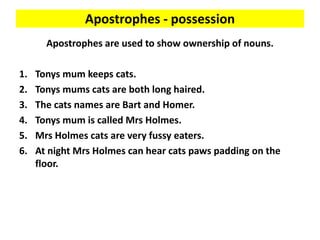The document discusses the use of apostrophes for omission and possession. For omission, apostrophes are used in abbreviated words to show that letters have been left out. For possession, apostrophes are used to show ownership of nouns, such as to indicate that something belongs to a person like Tony's mum or the cats' names. Examples are provided for each use of apostrophes.

